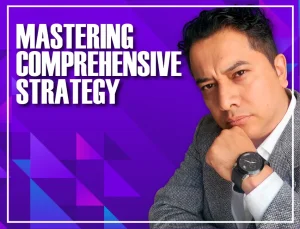Master the art of Negotiation

Effective negotiation is an indispensable skill for success in both business and life, yet many people lack the training necessary to negotiate effectively. Negotiation is all about leveraging your strengths, such as confidence, collaboration, and the pursuit of excellence, to achieve your professional goals. By harnessing these qualities, you can create a definition of negotiation that reflects your unique talents and abilities. To achieve greater outcomes in your negotiations, it is crucial to learn how to negotiate from a position of power.
In How I Do Business, I share my insights gained through years of study and hands-on experience in negotiation. By breaking down the essential components of successful negotiation and exposing common pitfalls to avoid, I provide a valuable resource for both novice and seasoned negotiators who wish to hone their skills and take their businesses to the next level.
The Fundamentals of Negotiation
At its core, negotiation is a discussion between two or more parties who must work together to achieve their respective goals. The process involves give and take on both sides to reach a mutually beneficial outcome. The most effective negotiation tactics prioritize meeting your own interests while also considering the other party’s needs. Your goal is to strike an agreement that is beneficial for both parties, leaving everyone feeling like they have won something.
However, in order to achieve the best possible outcome, it is important to keep the other party’s interests in mind. If one party emerges as the clear winner, it is not a negotiation at all, but a power struggle.
Crafting a Meaningful Negotiation Definition for your Business
To make negotiation work for your business, you must first define what negotiation means to you. Craft a definition that resonates with your brand identity and ultimate business vision. As you learn more about the principles and strategies of negotiation, think about how you can apply them to your business model. Consider what sets your business apart from competitors, from your marketing and branding to your customer retention strategies. By creating a personalized negotiation strategy, you can increase your self-confidence and improve your skills.
Essential Components of Successful Negotiation
There are three key components of effective negotiation:
Identifyng Requirements
In any negotiation, both parties have specific requirements that they need to fulfill. For example, if you are negotiating a new job, your prospective employer wants you to work for them, while you want a fair salary and benefits. Understanding these requirements is essential to successful negotiation.
Mutual Interest
Both parties aim to achieve their goals, but not at the expense of the other. Instead of viewing negotiation as a zero-sum game, consider it as a problem-solving effort where both parties benefit.
Focus on your Priorities
To give meaning to your negotiation, identify the key issues that matter to you the most. If you are negotiating for a job, you may prioritize additional paid time off over a higher salary.
Understand that your negotiation power lies in your interests and the goals that drive you. Why do you want this outcome, and why do you deserve it? It is crucial to approach negotiations with clarity on what you seek to achieve.
Negotiation involves a lot of conversation, and it is important to listen actively to the other party’s perspective. Empathy is essential to build a collaborative solution that benefits both parties.
Effective Negotiation
The following strategies will guide you to achieve your negotiation goals successfully.
Body Language
The way you carry yourself during negotiations is pivotal to your success. Your posture, demeanor, and gestures reflect your level of confidence. Maintaining good posture and keeping your body angled towards the other party convey an air of confidence and authority.
Dress Appropriately
Your appearance plays a vital role in shaping the other party’s perception of you. Dressing professionally shows that you take the negotiation seriously and respect the other party’s time and effort. Wearing clean and well-fitted clothes can boost your confidence and help you feel assured during the negotiation.
Confidently Approach Negotiations
In negotiations, projecting confidence can be a key factor in achieving the outcome you desire. Even if you’re not feeling particularly confident, you can still create the appearance of certainty in your ask. Your opposing party will be more likely to see things from your perspective and you’ll gain an advantage in the negotiation.
Find a Common Solution
Negotiation is essentially a problem-solving exercise. Instead of being adversarial, consider working with the other party to find a mutually beneficial solution. The more you understand your opponent’s needs and goals, the better the chances of reaching a successful agreement that satisfies both parties.
Be Flexible and Open-Minded
Flexibility is critical when it comes to negotiation. It’s important to remain open-minded and not get stuck on a single desired outcome. Prepare yourself by compiling a list of potential outcomes that you’d be happy with. This will allow you to explore multiple options and find the best possible solution.
Explore Options Before Offering Solutions
Dialogue is key to any successful negotiation. Instead of offering a final solution, focus on exploring your options with the other party. This approach opens up possibilities and allows for more creative problem-solving. By exploring potential outcomes, you may find a solution that works better for everyone involved.
Silence Can Be Golden
Silence can be a powerful tool in negotiations. When you’re unsure of what to say, take a moment to think before responding. This allows you to be intentional with your words and gives the other party time to respond. The collaborative skills you build through this approach can be valuable in your professional relationships and career advancement.



















